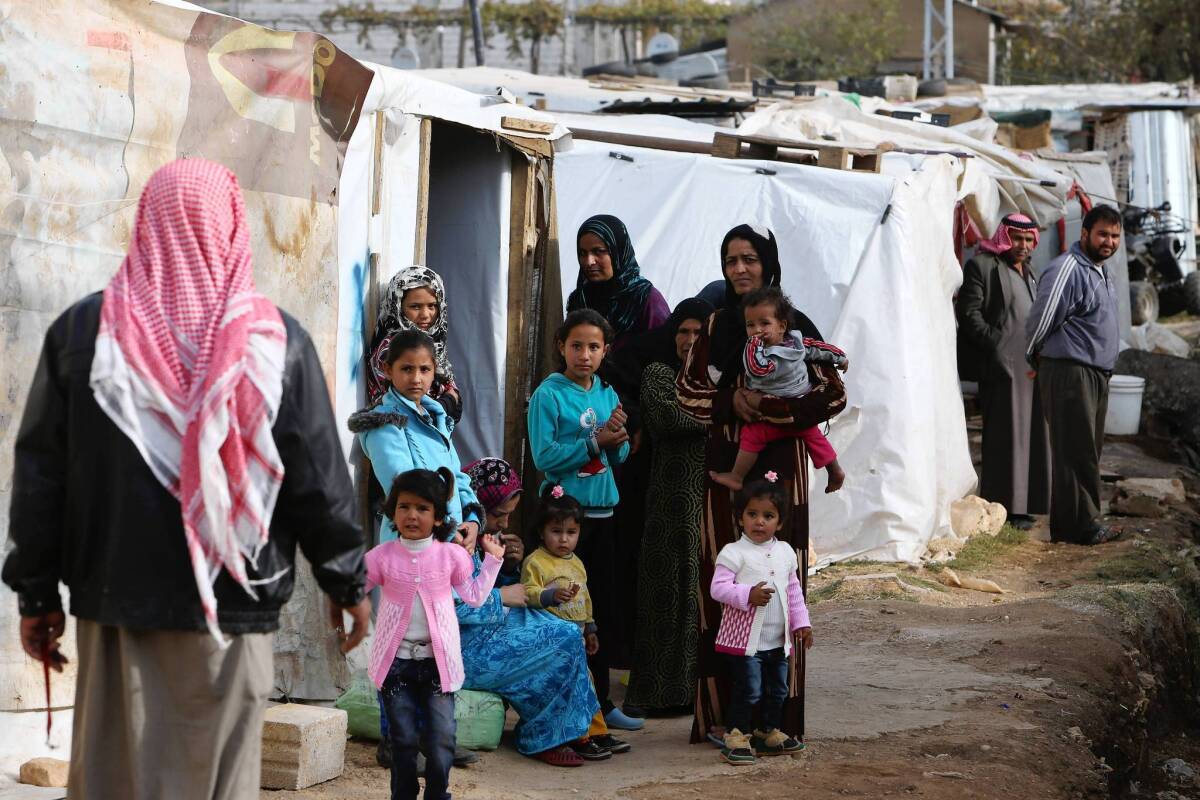9 million Syrians need help before winter, U.N. says

BEIRUT — Syria’s escalating humanitarian crisis has left more than 9 million people in the country in need of aid, according to United Nations estimates, and hopes were dashed Tuesday for peace talks this month to help end the nation’s civil war.
The long-anticipated Syrian peace negotiations known as Geneva II have been put off until at least December, amid deep divisions in the fractured ranks of the Syrian opposition, Lakhdar Brahimi, the U.N.-Arab League special peace envoy for Syria, said at a news conference in Geneva.
Meanwhile, the U.N. said 9.3 million Syrians — about 40% of the population — lack basic necessities as winter approaches and agencies find it increasingly difficult to deliver aid inside the war-ravaged nation.
“The only solution to the humanitarian crisis is a political solution to the crisis,” Brahimi said.
After more than 2 1/2 years of brutal conflict between forces loyal to President Bashar Assad and opposition fighters, Syria is facing a kind of humanitarian breakdown, aid workers say, with shortages of essential medicines, power, shelter, clean water and food.
The conflict, which began in March 2011, has left at least 100,000 dead, according to U.N. estimates, while vast areas have been reduced to rubble.
Some have expressed alarm about growing reports of malnutrition in a nation long largely self-sufficient in foodstuffs.
The World Health Organization has confirmed 10 cases of polio among babies and toddlers in eastern Syria. Immunization rates have plummeted since the war began, the agency says.
Syria had been polio-free for more than a decade before the recent outbreak, according to the government. Syrian officials and authorities in neighboring Lebanon have embarked on large-scale immunization campaigns, but many people are on the move, and vast swaths of the country are lawless battle zones.
Those in need of help in Syria include 6.5 million who fled their homes and now reside in makeshift lodging, including camps, abandoned buildings and schools, according to the U.N. An additional 2.8 million Syrians remain in their homes but face shortages of food, shelter, medical care and other essentials, the U.N. says.
In addition, more than 2 million people have fled Syria, most of them settling in neighboring countries such as Lebanon, Turkey, Iraq and Jordan, where the influx has severely stretched resources.
Valerie Amos, the U.N. humanitarian chief, called on the U.N. Security Council to help assure “the safe passage of medical personnel and supplies” in Syria and “unhindered delivery of humanitarian assistance.” She also urged efforts to expand “critical, lifesaving relief operations,” according to a statement.
The onset of winter means legions of displaced, homeless and inadequately housed Syrians will need protection from the cold, such as blankets, heaters and insulated shelters.
A major obstacle, aid workers say, is the difficulty of reaching people in contested and rebel-held zones. Food, shelter, medicines and other necessities are in many cases ready for shipment, humanitarian groups say, but delivering them in a war zone has proved dangerous and difficult.
“Access is the main problem,” said Jens Laerke, a spokesman for the U.N.’s humanitarian affairs office. “The minimum aid is there, pre-positioned in neighboring countries, in our warehouses.”
Gunmen in Syria have robbed relief convoys, demanded a cut of the supplies and taken drivers hostage, aid workers say.
“We have difficulties recruiting drivers for those convoys,” said Laerke, speaking by phone from Geneva. “But it is extremely important for us to reach those in need.”
Each side in the conflict has accused the other of obstructing relief shipments.
The Syrian government says rebel groups have hijacked aid convoys and seized medicines and other supplies meant for civilians. The opposition has accused the government of blocking aid to areas under siege in the Damascus suburbs and elsewhere, an allegation denied by Syrian authorities.
More to Read
Sign up for Essential California
The most important California stories and recommendations in your inbox every morning.
You may occasionally receive promotional content from the Los Angeles Times.










